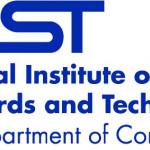- Settore: Technology
- Number of terms: 2742
- Number of blossaries: 0
- Company Profile:
The National Institute of Standards and Technology (NIST) — known between 1901 and 1988 as the National Bureau of Standards (NBS) — is a measurement standards laboratory and a non-regulatory agency of the United States Department of Commerce. The institute's official mission is to promote U.S. ...
(1) The smallest number of vertices whose deletion causes a connected graph to not be connected. (2) For a pair of vertices s and t in a graph, the smallest number of vertices whose deletion will separate s from t.
Industry:Computer science
(1) The substring of a pattern delimited by two don't cares or one don't care and beginning or end of the pattern. (2) A substring.
Industry:Computer science
In the field of computer science, an ordered binary decision diagram (BDD) is a data structure that represents a Boolean function. It is a compressed representation of sets or relations. Unlike other compressed representations, operations are performed directly on the compressed representation, i.e. without decompression.
Industry:Computer science
In the field of computer science, a reduced binary decision diagram (BDD) is a data structure that represents a Boolean function. It is a compressed representation of sets or relations. Unlike other compressed representations, operations are performed directly on the compressed representation, i.e. without decompression.
In popular usage, the term reduced ordered binary decision diagram (ROBDD) is used synonymously as ordered binary decision diagram (ROBDD), but with emphasized ordering and reduction aspects.
Industry:Computer science
∑<sub>i=1</sub><sup>N</sup> 2<sup>-c(i)</sup> ≤ 1, where N is the number of leaves in a binary tree and c(i) is the depth of leaf i.
Industry:Computer science
1) The assignment of k colors (or any distinct marks) to the vertices of a graph. 2) The assignment of k colors to the edges of a graph.
A coloring is a proper coloring if no two adjacent vertices or edges have the same color.
Industry:Computer science
A 2-pass sort algorithm that is efficient when the range of keys is approximately equal to the number of items and only keys are sorted. The first pass counts the occurrences of each key in an auxiliary array. The second pass goes over the auxiliary array writing the counted number of keys to the destination.
Industry:Computer science
A 2-pass sort algorithm that is efficient when the range of keys is approximately equal to the number of items. The first pass allocates an array of buckets, one bucket for each possible key value, then moves each item to its key's bucket. The second pass goes over the bucket array moving each item to the next place in the destination.
Industry:Computer science
A 2-pass sort algorithm that is efficient when the range of keys is small and there many duplicate keys. The first pass counts the occurrences of each key in an auxiliary array, and then makes a running total so each auxiliary entry is the number of preceding keys. The second pass puts each item in its final place according to the auxiliary entry for that key.
Industry:Computer science
A 3-way tree where every node's left subtree has keys less than the node's key, every middle subtree has keys equal to the node's key, and every right subtree has keys greater than the node's key. If the key is a multikey (string, array, list, etc.), the middle subtree organizes by the next subkey (character, array or list item, etc.)
Industry:Computer science
